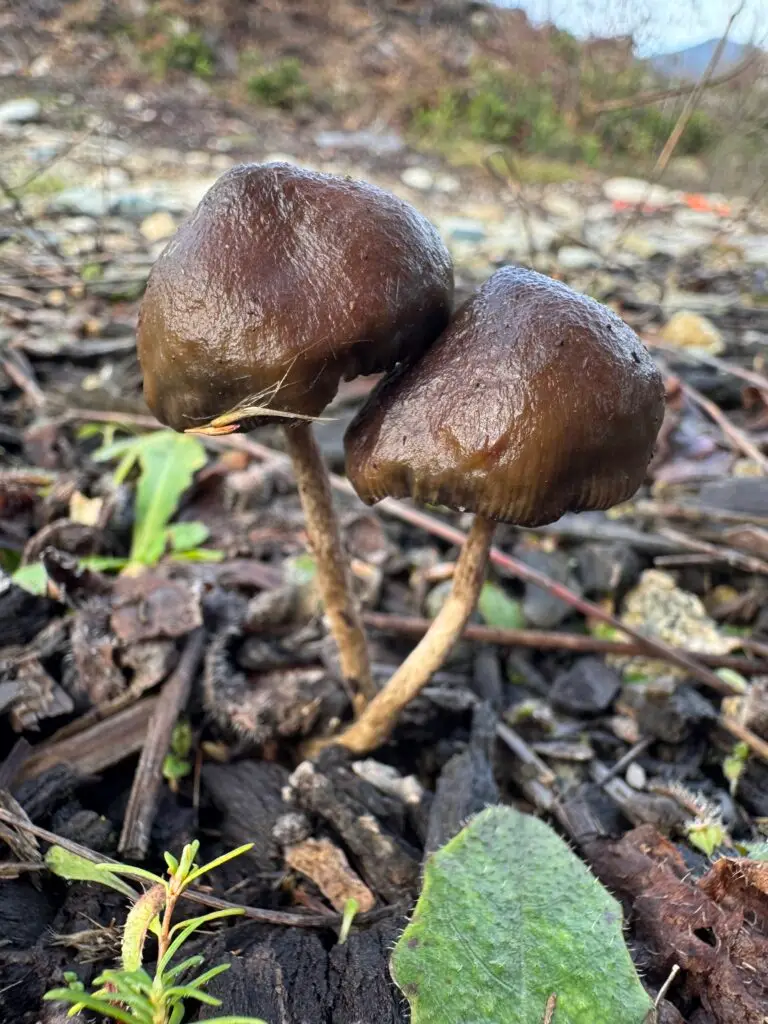
Psilocybe semilanceata: A Mycological Profile of the Liberty Cap Mushroom
Among all species in the Psilocybe genus, Psilocybe semilanceata, commonly

At first glance, Bitcoin and mushrooms may seem like unrelated topics. One is a digital currency built on blockchain technology, and the other is a fascinating organism that grows in soil, wood, or decaying matter. However, when you dig a little deeper, you’ll find surprising similarities that highlight the innovative and interconnected nature of both. This blog explores the fascinating parallels between Bitcoin and mushrooms, touching on their decentralized nature, ability to thrive in diverse environments, and their potential to reshape industries.

Before diving into their similarities, let’s define these two seemingly unrelated entities:
Though one operates in the digital realm and the other in nature, both are systems that thrive on innovation, connectivity, and adaptability.
Bitcoin is a pioneer in decentralization, removing the need for central authorities like governments or banks. Transactions are validated by a distributed network of nodes, ensuring transparency and security without relying on a single controlling entity.
Mushrooms operate within decentralized systems through their underground mycelial networks. Mycelium connects fungi to plants, soil, and other fungi, creating a vast, interconnected network that distributes nutrients and communicates signals across ecosystems.
The Parallel: Both Bitcoin and mushrooms thrive on decentralized systems. Bitcoin’s blockchain mirrors the mycelial network’s ability to connect and share resources efficiently, without a central authority.
Bitcoin has faced challenges like regulatory crackdowns, market volatility, and criticism from skeptics. Despite these hurdles, it has consistently adapted, maintained its value, and grown in adoption.
Mushrooms are incredibly adaptable, growing in diverse environments—from dense forests to urban areas. They can thrive in harsh conditions, including toxic waste sites, showcasing their ability to survive and even restore damaged ecosystems.
The Parallel: Both Bitcoin and mushrooms demonstrate resilience, thriving in diverse and challenging environments. Bitcoin’s adaptability in fluctuating financial markets mirrors mushrooms’ ability to grow in varied and unexpected conditions.
Bitcoin is disrupting traditional finance by introducing concepts like decentralization, transparency, and peer-to-peer transactions. Its underlying blockchain technology has inspired advancements in supply chain management, healthcare, and voting systems.
Mushrooms are driving innovation in industries like food, medicine, and sustainability. From mycelium-based materials replacing plastics to medicinal mushrooms offering health benefits, fungi are reshaping how we approach food production, waste management, and even construction.
The Parallel: Both Bitcoin and mushrooms act as catalysts for innovation, offering new perspectives and solutions to long-standing challenges.
Bitcoin mining has faced criticism for its energy consumption. However, innovations like renewable energy-powered mining and alternative consensus mechanisms (e.g., proof-of-stake) aim to improve its sustainability.
Mushrooms are champions of sustainability, breaking down organic matter and recycling nutrients back into ecosystems. They even have the potential to degrade plastics and toxic waste, making them key players in environmental restoration.
The Parallel: While Bitcoin strives to improve its efficiency, mushrooms already exemplify sustainability, showcasing a shared commitment to innovation and problem-solving.
Bitcoin’s value grows as more people use and accept it. Its widespread adoption as a digital asset, payment method, and store of value is fueled by its strong and growing community.
Mycelial networks connect plants, fungi, and other organisms in mutually beneficial relationships. This interconnected system supports ecosystems by enhancing nutrient distribution and communication.
The Parallel: Both Bitcoin and mushrooms benefit from network effects, thriving as their respective ecosystems expand and connect.
Bitcoin has a worldwide presence, enabling financial inclusion for millions of unbanked individuals. Its decentralized nature transcends borders, making it a universal tool for value transfer.
Mushrooms play a crucial role in maintaining global ecosystems. From carbon sequestration to soil enrichment, their impact is felt across continents, contributing to the health of the planet.
The Parallel: Both Bitcoin and mushrooms have far-reaching impacts, shaping global systems in finance and ecology.
Bitcoin faces scalability issues, regulatory uncertainty, and misconceptions about its utility. Its community continues to innovate and educate to address these challenges.
Mushrooms face challenges like habitat destruction, overharvesting, and climate change. Conservation efforts and sustainable cultivation practices aim to protect their biodiversity.
The Parallel: Both Bitcoin and mushrooms encounter obstacles that require innovation, education, and collaboration to overcome.
While Bitcoin and mushrooms exist in vastly different domains, their shared characteristics—decentralization, resilience, innovation, and global impact—highlight surprising parallels. Bitcoin revolutionizes finance and technology, while mushrooms sustain ecosystems and drive innovation in sustainability.
Both remind us of the importance of interconnectedness, adaptability, and collaboration in shaping a better future. Whether you’re a crypto enthusiast or a mycology fan, exploring the worlds of Bitcoin and mushrooms offers valuable insights into the potential of decentralized systems and nature’s ingenuity.
#BitcoinAndMushrooms #Decentralization #FungiFacts #BlockchainTechnology #Sustainability

Among all species in the Psilocybe genus, Psilocybe semilanceata, commonly

Among the many species studied within the Psilocybe genus, Psilocybe

If you’re into mushroom microscopy, taxonomy, or the broader story

Microdosing Magic Mushrooms & Psilocybin: What’s Trending in 2025 In